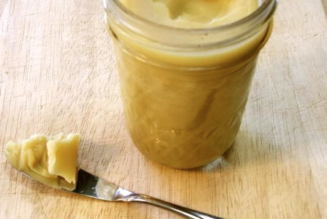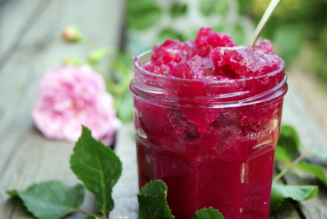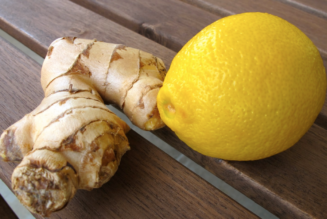The Ayurveda Guide For Spring Season
Spring is a time of new beginnings. This is a time when nature, once again, comes to life as flowers bloom, birds sing and people generally feel more energized. Often the first signs of spring, especially after a long cold winter, are described as God himself breathing new fresh life into his creation. In fact, Lord Krishna [in the Bhagavad Gita] explains when describing himself, “I am the Soul in the body, the mind in the senses, the eagle amongst birds and the lion amongst animals. Among all the trees I am the sacred bodhi tree, and of the season, I am spring.” More simply, spring is the king of all seasons. Similarly, Ayurveda is an ancient science of healthy living and takes into consideration the whole person. According to these teachings, every aspect of our life contributes to our overall health. By understanding that we are a miniature reflection of nature, we should live accordingly – in accordance to the natural rhythms of life; i.e. seasons.
“Spring is the king of all seasons.”
The Importance Of Transition …
Healthy living is centered around creating a daily routine and a healthy routine helps to establish balance in our lives. In order to determine an appropriate routine, we first need to understand the significance of each season. The wisdom of Ayurveda, stresses great importance on the transition between two seasons. One can think of this transition as a door from one season to the next. As we pass through this transition, we should consider a new lifestyle and new attitude as we pass from the old season and enter into a new season. For example, the warmth of spring melts the winter snow which brings about moisture to the atmosphere. Similarly, Ayurveda speaks about the springtime warmth also melting the accumulated cold quality of “kapha dosha” which liquefies and often manifest as “hay fever” [i.e. nasal congestion, itchy and watery eyes, sneezing, postnasal drip, and cough].
Ayurvedic Liver Cleanse With Chandanni
Toxins mask the miraculous intelligence of your body, creating health issues and discomfort instead of health. Yet toxic build-up is virtually unavoidable in today’s fast-paced world. Stressful jobs, environmental pollution and fast-food diets contribute to toxic waste in the body. And no matter how pure the food you eat, if your digestion is out of balance, your own body will create digestive toxins.
Elim-Tox-O is a gentle formula that helps cleanse your body’s natural purification systems without forcing, making it the recommended choice for people who have a tendency towards acne, heartburn, and excess stomach acid or who have a lot of “fire” in their physiology.
~Lifestyle Recommendations~
Do’s
The goal during spring season is to pacify kapha with foods that are light and easily digestible. Foods that are particularly bitter, pungent, and astringent as these tastes are considered kapha pacifying – or that which helps to reduce kapha.
Organic Kapha Churna Stimulating Spice Mix
Ready-to-use spice mixtures satisfy the six ayurvedic tastes considered essential for balance. Organic Stimulating Kapha Churna includes ginger, coriander and turmeric.
Don’ts
Avoid food which are heavy and oily while minimizing tastes which are sweet, sour and salty – as these flavors increase kapha. Instead, we should consider foods which are pungent, bitter, astringent – since these tastes naturally help to reduce kapha.
Examples Springtime foods – which help pacify kapha
- Legumes: split pea, red lentils, chickpeas, pinto beans
- Grains: amaranth, barley, buckwheat, corn, millet, oats, quinoa, rye
- Fruits: apples, apricots, berries, cherries, mangoes, peaches, pomegranates, pears
- Veggies: artichoke, asparagus, beets, broccoli, carrots, okra, spinach
Diet
It is advised to have easily digestible food which are low in calories during the spring season since the digestion power of “Agni” is diminished. Ayurveda believes that all diseases are primarily due to a faulty digestion. It is also now well understood that the gastrointestinal system is a major organ of immunity.
Organic Digest Tone
Supports digestive system and elimination; assists body in absorbing nutrients; high-quality antioxidant; wide range of benefits.
Herbal Di-Gest
Supports improved digestion and balanced appetite; helps with gas, bloating, and discomfort.
TRIKATU – Digestive herbal formula …
Trikatu is a formula combination of equal parts ginger, black pepper and pippali. The name trikatu means three peppers or the three pungents. It is a wonderful herb with strong digestive properties.
Hot water. Drinking sips of hot water also helps improve digestion. Kapha is predominant during the daytime especially from 6 am to 10 am so it’s best to avoid eating a heavy breakfast at this time. Instead, consider eating a healthy and light breakfast during spring; particularly is suffering from allergies. It is best if one avoids cold, oily foods & excessive sweet or sour foods.
Honey. Honey is thought to have a “scrapping effect” and small amounts of raw honey is considered beneficial to help reduce kapha. Therefore, a good consideration for sweeteners during spring season is honey.
Herbal Teas. Since coolness and moisture are still within the atmosphere and before we fully experience the heat of summer, it’s of benefit to consider having warming teas such as ginger, cinnamon, cardamom, and clove tea during spring.
Organic Stimulating Kapha Tea
The perfect answer when you’re feeling sluggish or heavy — spicy tea!!
Herbs & Spices
A few herbs which could be used to reduce kapha and fight the allergies during spring season are spices, which can be added to your food such as turmeric, fresh ginger, garlic, onions, and horseradish.
Turmeric is a common spice found in almost every kitchen in many Asian countries like India. Amongst its countless roles, turmeric is commonly used for cosmetic and coloring purposes. Turmeric is widely utilized in Ayurvedic Medicine in treating allergies, immune conditions, liver diseases and neurological disorders. It is considered a holy, auspicious and natural healer. Helps purify the blood and acts as an antioxidant; supports healthy heart, liver, lungs, circulation and nervous system. Turmeric is one of the oldest, most important spices known to humankind.
Fresh ginger. Fresh ginger tea is prepared by boiling fresh ginger in water also reduces the kapha, honey could be added to this tea. Ginger has properties which help in reducing fevers, soothes sore throats, and encourages coughing to remove mucus from the chest. The chemicals shagaols and gingerols in ginger give it that spicy kick that stimulates blood circulation and opens your sinuses. Improved circulation means that more oxygen is getting to your tissues to help remove toxins and viruses. Research from the Toyama Medical and Pharmaceutical University in Japan indicated ginger has the ability to help prevent and treat flu infections.
Garlic. Garlic is well known throughout history as a food that fights infections from bacteria and viruses. The BBC reported in 2007 that garlic can help prevent and fight the common cold. Allicin is one of the immune stimulating nutrients in garlic that is released when you cut, chop or crush the cloves. Garlic stimulates the activity of immune system cells that destroy cold and flu viruses.
5 More Simple Health Tips
1. Exercise regularly and avoid sleeping in daytime can help to prevent kapha accumulation. Exercise appears to have the advantage of being able to jump-start the immune system, and that can help reduce the number of colds one gets. With exercise, the number and aggressiveness of certain immune cells, such as the ones called natural killer cells, increase by as much as 50% to 300.
2. Avoid exposure to direct air as this will help to reduce kapha and will also reduce the chance of being exposed to pollen and other allergen’s.
3. Massage. Oil massage and dry massage should be done regularly. Herbal bath will also help. Herbs like sandal wood which have a cooling effect also help in strengthening the body and improving the Immunity.
Ayurvedic Massage Oils
Personalize your daily massage with herbal massage oils. Formulated to balance specific skin and dosha types, our herbal massage oils not only lubricate but also purify the skin. They have a balancing effect on the mind and body; they promote the appearance of smooth, youthful skin; and they support vitality and healthy circulation.
4. Nasya
‘Nasya’ is an Ayurvedic practice that involves administering herbal oils to the nasal passage. Commonly such treatments are known to clear sinus congestion, help clear accumulated toxins from the head and neck region. In Ayurveda, nasya is one of the important self-care methods which brings about internal detoxification. It is a part of an ‘Ayurvedic Daily Routine’ by putting 3-5 drops of warm ghee or sesame seed oil into each nostril in the morning.
5. Panchakarma – The Ultimate Detox
Finally, it is generally considered beneficial to do panchakarma during pre-spring period under the guidance of a qualified professional. Panchakarma or five therapeutic treatments.
Want More?
Transform Your Life With Ayurveda
The ancient wisdom of Ayurveda sees each person as not being a set of parts, but as a whole and for one to be considered healthy – the body, mind, and consciousness must be balanced. Ayurveda is one of the world’s oldest and comprehensive systems of natural medicine and the core teachings of Ayurveda is centered around creating lifestyle habits for overall good health and wellbeing.
Disclaimer
The sole purpose of these articles is to provide information about the tradition of ayurveda. This information is not intended for use in the diagnosis, treatment, cure or prevention of any disease. If you have any serious acute or chronic health concern, please consult a trained health professional who can fully assess your needs and address them effectively. If you are seeking the medical advice of a trained ayurvedic expert, call or e-mail us for the number of a physician in your area. Check with your doctor before taking herbs or using essential oils when pregnant or nursing.


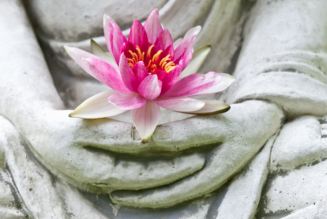
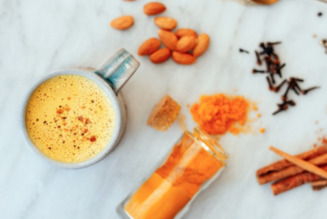
![Female Health: Amenorrhea [cessation of menses] – An Ayurvedic Perspective](https://healthyayurveda.com/wp-content/uploads/2015/07/1.-Amenorhea--327x219.png)

